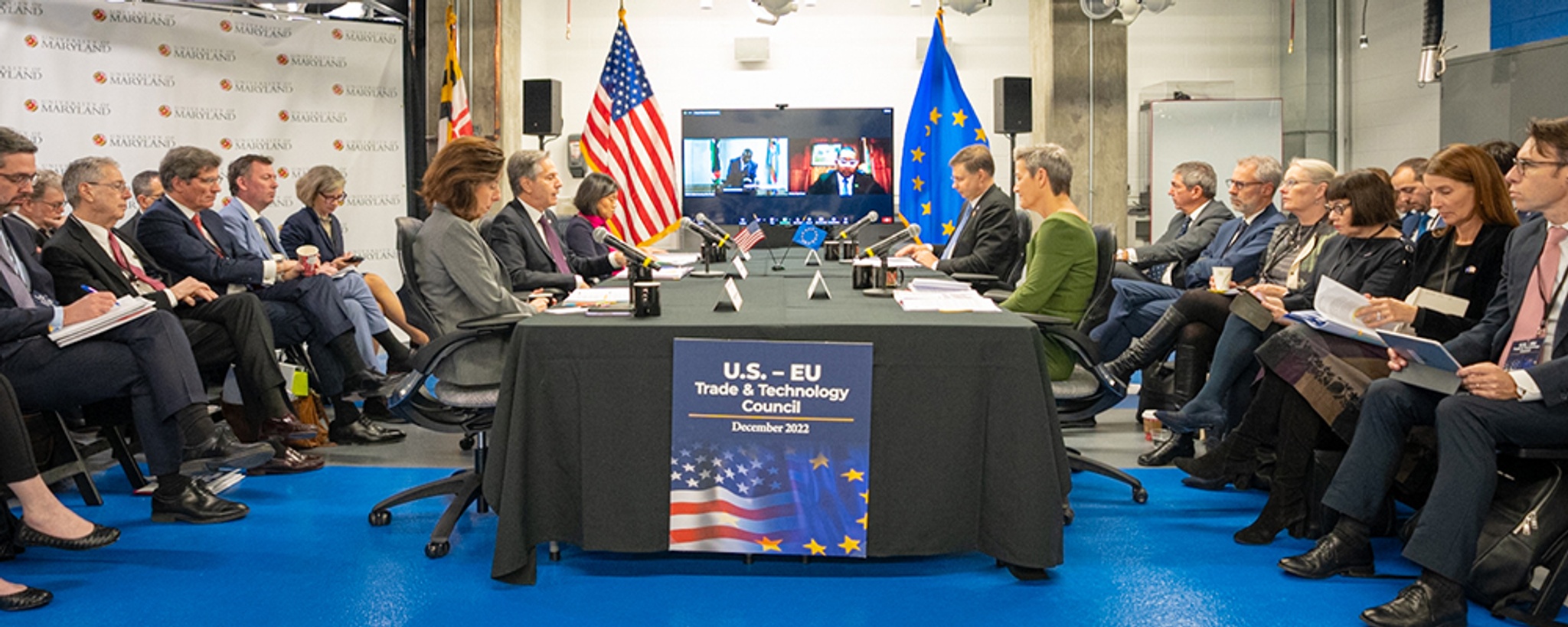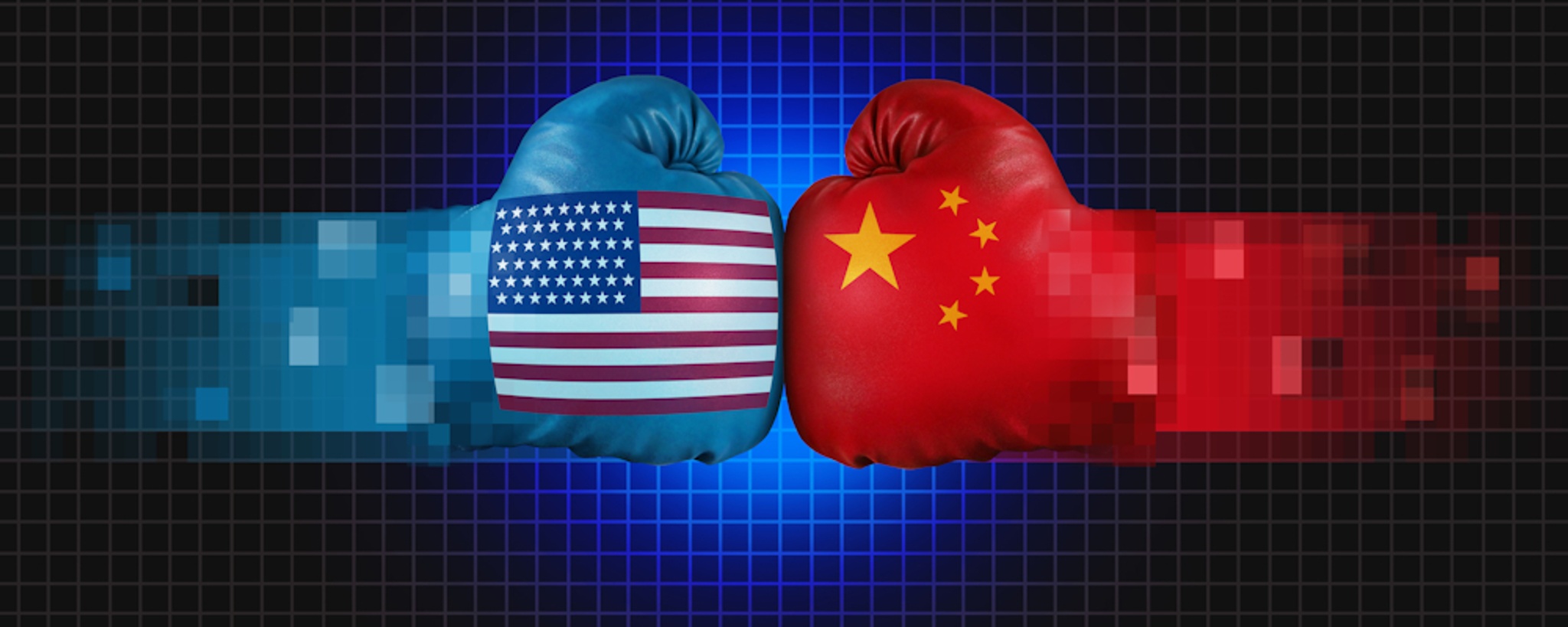Big Tech Policy
Navigate forward to interact with the calendar and select a date. Press the question mark key to get the keyboard shortcuts for changing dates.
Navigate backward to interact with the calendar and select a date. Press the question mark key to get the keyboard shortcuts for changing dates.
ITIF’s Aegis Project for Defending U.S. Technology Leadership is dedicated to helping the United States prevail in its techno-economic power struggle with China by identifying and opposing domestic and international laws and regulations that undermine the competitive position of major U.S. tech companies. Policymakers must understand that limiting attacks on U.S. tech leaders is critical for America’s global power and leadership.
Featured
More Publications and Events
August 14, 2025|Events
How Foreign Economic Attacks on US Tech Firms Weaken America
Please join ITIF’s Aegis Project for an expert panel discussion with leading experts from the Council on Global Competitiveness and Innovation (CGCI) on how non-tariff attacks (NTAs) are draining critical R&D resources from AI, quantum computing, and advanced semiconductors at the precise moment when concentrated investment is essential for maintaining our strategic edge.
July 18, 2025|Op-Eds & Contributed Articles
American Tech Companies Are Under Attack in Global Markets
The Trump administration should push back against foreign governments enacting policies specifically tailored to undermine American tech companies and US leadership.
July 10, 2025|Blogs
Brussels Risks Prioritising Symbolism Over Substance in Cloud Procurement
In its push for digital sovereignty, the European Commission is reportedly planning to replace Microsoft Azure with the French cloud provider OVHcloud or another European alternative. But this move, while politically symbolic, would be costly. Far from enhancing security, this migration would sacrifice sound procurement and EU legal obligations in service of a hollow vision of digital nationalism.
July 2, 2025|Testimonies & Filings
Letter to the Trump Administration Regarding Non-Tariff Attacks on US Tech Firms and Industries
Foreign governments are systematically deploying policies that constitute non-tariff attacks (NTAs) on America’s leading technology companies. ITIF and other think tank scholars and policy experts urge the administration to put these unfair NTAs on the U.S. trade agenda and insist that America’s trading partners address them.
June 29, 2025|Op-Eds & Contributed Articles
How Should Korea Negotiate With Trump Over Trade?
For Trump, it’s a new world and Korean President Lee Jae Myung and his administration needs to treat it as such by negotiating a new deal that preserves Korean market access to America in exchange for real concessions on what at the end of the day are relatively minor things for Korean economic competitiveness.
May 21, 2025|Presentations
The Digital Markets Act Explained: Is the EU Rewriting the Rules For Big Tech?
Lilla Nóra Kiss speaks on the legal and economic ramifications of the Digital Markets Act at the Università del Salento.
April 28, 2025|Reports & Briefings
EU Regulatory Actions Against US Tech Companies Are a De Facto Tariff System
EU policymakers frame their legislative and regulatory actions against U.S. tech companies as measures to promote competition and protect consumers. But they operate as protectionist trade barriers and revenue-generating mechanisms.
April 17, 2025|Blogs
Europe’s GDPR Fines Against US Firms Are Unfair and Disproportionate
The magnitude of the total fines against U.S. companies is extraordinary. To put the amount in perspective, it is roughly the same as the GDP of Fiji. It could cover the cost of sending five rovers to explore Mars. It would be enough to build two new football stadiums in Washington, DC. It could even pay for every household in America to buy six dozen eggs.
April 10, 2025|Blogs
Trade Talks Must Confront Foreign Non-Tariff Attacks on American Tech
U.S. trade negotiations must go beyond tariffs to confront the growing trend of foreign governments targeting American tech companies with discriminatory regulations, taxes, and fines. These non-tariff attacks undermine U.S. innovation and global competitiveness and must be a central focus to protect America’s techno-economic leadership.
April 8, 2025|Op-Eds & Contributed Articles
Big Tech Antitrust: Postelection Edition
While U.S. antitrust enforcement is likely to shift under a second Trump administration, ongoing cases against Big Tech are expected to continue. Rather than doubling down on neo-Brandeisian antitrust, the Trump administration should use evidence-based policymaking that recognizes how firms evolve in response to incentives and market dynamics.









